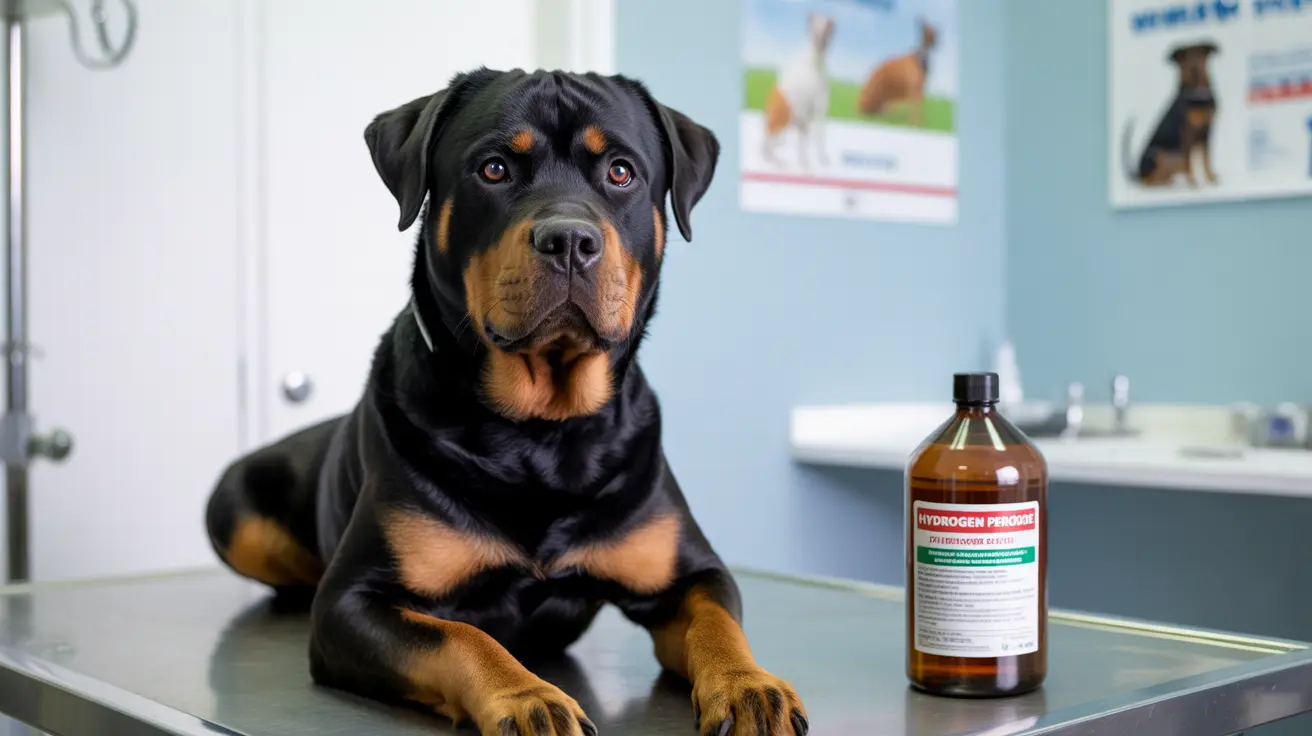Understanding Hydrogen Peroxide Use in Dogs
When it comes to using agua oxigenada (hydrogen peroxide) for dogs, pet owners must exercise extreme caution. While this common household chemical might seem like a handy solution for various pet emergencies, its use requires careful consideration and, in most cases, direct veterinary supervision.
This comprehensive guide will explore the safe and unsafe uses of agua oxigenada in dogs, helping pet owners understand when it might be appropriate and, more importantly, when it could be dangerous.
Safe Uses Under Veterinary Guidance
The only veterinary-approved use of agua oxigenada in dogs is for inducing vomiting in specific poisoning cases, and this should only be done under direct professional guidance. Veterinarians may recommend this approach when:
- The dog has ingested a non-caustic toxin within the last 30 minutes
- The dog is alert and conscious
- The substance ingested isn't sharp or corrosive
- The dog has no underlying health conditions that could complicate the procedure
Dangers and Risks to Be Aware Of
Using agua oxigenada incorrectly can lead to serious complications in dogs. Some potential risks include:
- Severe gastric irritation and ulceration
- Chemical burns to the mouth, throat, and stomach
- Aspiration pneumonia from inhaling vomit
- Tissue damage when applied to wounds
- Delayed healing and increased inflammation
Proper Wound Care Alternatives
Despite common misconceptions, agua oxigenada should never be used to clean dog wounds. Instead, veterinarians recommend:
- Sterile saline solution for wound cleaning
- Veterinary-approved antiseptic solutions
- Professional medical attention for serious injuries
- Proper bandaging techniques when appropriate
When to Contact Your Veterinarian
Always contact your veterinarian immediately if:
- Your dog has ingested a potentially toxic substance
- You're considering using agua oxigenada for any reason
- Your dog has an open wound requiring treatment
- You notice signs of poisoning or illness in your pet
Frequently Asked Questions
Is it safe to use hydrogen peroxide (agua oxigenada) to make my dog vomit after poisoning?
No, you should never attempt to make your dog vomit with agua oxigenada without explicit veterinary guidance. While it may be recommended in specific cases, incorrect use can cause severe complications and worsen the situation.
Can I clean my dog's wounds with hydrogen peroxide without causing harm?
No, agua oxigenada should never be used to clean dog wounds. It damages healthy tissue, delays healing, and causes unnecessary pain. Use veterinary-approved cleaning solutions or sterile saline instead.
What are the risks of giving hydrogen peroxide to dogs without veterinary advice?
Administering agua oxigenada without veterinary supervision can lead to chemical burns, severe gastric irritation, aspiration pneumonia, and other potentially life-threatening complications.
When should a veterinarian recommend using hydrogen peroxide for a dog's poisoning?
Veterinarians may recommend agua oxigenada only in specific cases where a dog has recently ingested non-caustic toxins and meets certain health criteria. This decision is made on a case-by-case basis by qualified professionals.
What are safer alternatives to hydrogen peroxide for treating dog wounds or poisoning?
For wounds, use sterile saline solution or veterinary-approved antiseptics. For suspected poisoning, contact your veterinarian or animal poison control immediately for proper guidance tailored to your specific situation.
Conclusion
While agua oxigenada has limited appropriate uses in canine care, its application should always be under direct veterinary supervision. The safest approach is to contact your veterinarian immediately in any emergency situation rather than attempting home treatment with hydrogen peroxide.
Remember, your veterinarian is your best resource for ensuring your dog's safety and well-being in any medical situation. Keep their contact information readily available, and don't hesitate to reach out with concerns about potential poisoning or injury.






